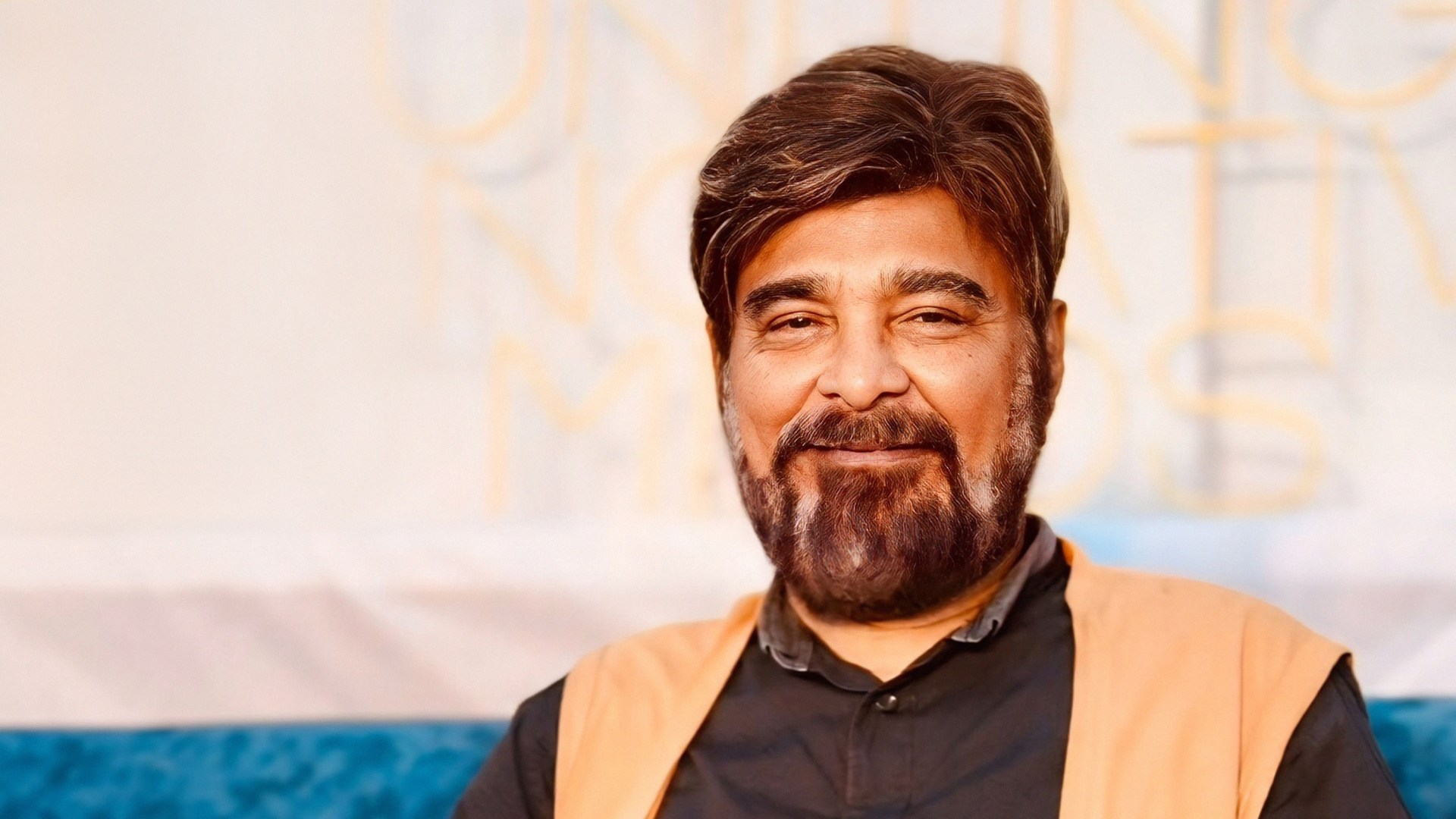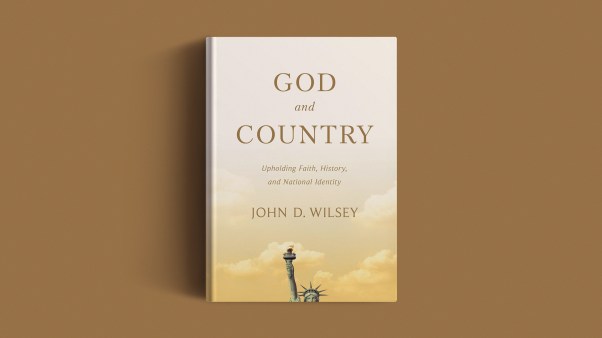In the past 30 years, Robert Clements’ daily column, Bob’s Banter, has appeared in more than 60 newspapers and magazines, most of them in India but also in countries like the UK, Bangladesh, Sri Lanka, and the United Arab Emirates. His articles, which are translated into Hindi, Urdu, and Punjabi, reach an estimated 6 million people.
In a country where only 2 percent of the population is Christian, Clements sees his work as a calling, as he uses his writing both to point people to God and to call out injustices against Christians in India. Using satire and humor to engage readers, Clements comments on everything from politics to relationships to faith.
Today, the 70-year-old Indian writer isn’t slowing down as he continues Bob’s Banter, teaches writing, gives motivational speeches, and writes books and musicals. Three of his books will be published soon.
Christianity Today spoke to Clements, who lives in Mumbai with his wife, about what it means to be a Christian writer in India, what his message is for aspiring writers, and how the everyday momentsinspire his columns. This interview has been edited for clarity and length.
How did you get into writing?
I’ve always been passionate about words. I wrote my first little novel when I was 12, and around that time I had the thrill of being published. Through my college years, I supported myself by writing and selling nearly 80 radio plays.
Later I started a successful business in civil contracting. It was good work, but writing never left me. With the encouragement of my wife, Lata—who is a doctor—I eventually stepped away from the business and moved into full-time writing more than 30 years ago.
The skills I had honed in business—persistence, negotiation, and learning not to take no for an answer—helped me navigate the publishing world and approach editors. My first column found a home in The Times of India, and from there, the journey gathered momentum. Looking back, I see now that this was more than just a career shift; it was a calling. God had given me a gift with words, and he opened doors for me to use them—not just to make a living but to speak truth, bring hope, and point people to him.
You grew up in a Christian home. At what point did your faith become real to you?
It happened not in a church pew but while facing the hard realities of business. After completing my master’s in English, I boarded a train from Chennai to Mumbai with only 500 rupees [$6 USD] in my pocket. I was young, ambitious, and determined to make a mark. But Mumbai, with its relentless pace and cutthroat competition, quickly stripped me of illusions. There were days when I wasn’t sure how I’d pay rent or even afford the next meal.
It was in those moments of uncertainty that I found God—not as a distant idea but as a living presence. In the loneliness of a rented room, in the worry of unpaid bills, I discovered a God who cared about me personally, who provided in ways I couldn’t explain, and who became more real than the challenges I faced.
My wife also had a childlike faith. Together we learned to bring everything—finances, decisions, family, work—before him in prayer. Time after time, we saw him answer in ways that left us humbled.
But Christianity is more than answered prayers—it is salvation itself. The simple but life-changing truth is that because Jesus died for my sins, I now have fellowship with God. I am his child, and he guides me. That is the message I carry in my writing and speaking: It isn’t complicated. It isn’t about rituals. It’s about accepting what Christ has already done and living in the reality of his presence.
What was your column, Bob’s Banter, like when you started it 1993?
Because of my initial experience writing plays, most of my earlier writing took on a conversational tone. To keep readers engaged, the columns consisted of banter between two characters. The name Bob’s Banter stuck, although my writing today includes spiritual or motivational articles as well as political satire. I try to see whether I can take the serious issues of politics, society, and faith and write about them with a smile. For instance, recently I read a newspaper headline about how Indians are treating AI chatbots as their personal doctor and turned it into a piece about how Indian politicians similarly prescribe ill-informed remedies for people’s problems.
To my joy, readers embraced it. Some said they laughed, then cried; others said they were offended but still couldn’t stop reading. That, I thought, was the perfect mix.
You’ve written more than 7,000 pieces over your writing career. How do you come up with fresh ideas for your columns and articles?
Everywhere. Imagination is a gift God has blessed me with, and it allows me to see columns in the most ordinary of moments. One day it may be a crying baby reaching out for a ball—that became one of my recent columns. Another day, it may be a politician stretching the truth. Sometimes the spark is a line from Scripture; other times it’s a conversation with my wife over morning coffee.
I often tell people that life writes my columns for me—I simply put them on paper. The world is full of stories waiting to be told, lessons waiting to be drawn out. A writer’s task is to notice them, to listen carefully to both the world and to God’s gentle whispers within it.
In the classes I teach for aspiring writers, I call this the “looking out of the window” technique. You look out of a window, take in whatever you see—whether it’s a tree, a bird, or a passing stranger—and train yourself to imagine a story around it. Over time, that practice sharpens not just creativity but also attentiveness to life itself.
One of my favorite examples came from watching a stray dog sleeping outside my gate. As I watched it, I began to reflect on loyalty, belonging, and the way society treats its weakest. By the time I finished writing the article, it had turned into a full-fledged column on compassion, which struck a chord with readers across the country.
And often humor sneaks in too. I’ve found that satire disarms people—it makes them laugh even as it makes them think. A baby grasping for a ball can become a lesson on perseverance; a politician’s “elastic truths” can become a joke that leaves readers both chuckling and pondering. That’s the joy of writing for me: to take the everyday and show that hidden inside is a story, sometimes serious, sometimes funny, but always pointing to something larger than itself.
How did you find your voice as a writer? Do you have any advice for aspiring writers on finding their voice?
My voice as a writer has evolved over the years. Initially I leaned heavily on satire—it was sharp, funny, and often biting. But with time I realized that writing is not only about pointing out what’s wrong but also about showing a way forward.
When I began writing with solutions in mind, my style became gentler, more persuasive. Satire still plays a central role in my columns, yet truth has been my guiding principle, and that conviction has kept me steady even when writing in difficult contexts.
For example, I’ve had a Sunday column running for more than 15 years in a newspaper based in Nagpur, the headquarters of India’s Hindu-nationalist group Rashtriya Swayamsevak Sangh, or RSS. Many of those columns contain strong pro-Christian views. At times I’ve received hateful comments, but more often I get notes of appreciation. The fact that they’ve continued running my writing all these years tells me that truth, when expressed fairly, can find its way into even the hardest places.
My advice to aspiring writers is simple: Writing is a gift from God. With that gift comes a choice. Do you want to be popular, or do you want to be respected for telling the truth? If you choose truth, then learn to wield it with precision. Don’t bludgeon your opponents—cut carefully, like a surgeon, so that your words heal even as they correct. Be fair. Develop arguments that can win people over, not just rally those who already agree with you. And always write in a way that even those who don’t enjoy reading will still find themselves drawn in.
How do you incorporate your Christian faith into your writing?
I don’t force Scripture into my writing; I let it seep in. My faith is not a separate compartment of my life. It’s the lens through which I see everything: politics, society, family, even cricket. If God is central to my life, then naturally he will appear in my words.
It’s a little like seasoning food—you don’t always see the salt, but you taste it. In the same way, I believe Scripture should be used gently in writing. Don’t throw the Bible at readers, but weave it in so that they glimpse truth for themselves. That’s when it becomes an invitation rather than an argument.
I also believe Christians in India need to be intentional about mixing with people of other faiths. Too often we live in a “ghetto”—we know how to speak to our own, and then we use the same language when addressing others. But that isn’t the way it works. To communicate effectively, we must meet people where they are, respect their perspective, and share our experiences honestly.
At the same time, we should never be ashamed of speaking about our faith. In today’s India, where Christians face suspicion and attacks, it is important to explain to our fellow citizens that their fears are unfounded—that someone becoming a Christian does not mean they have changed their loyalty to another country. We remain fully Indian even as we worship differently.
What are the biggest hurdles you’ve faced as a Christian writer in India?
In India, writing openly about faith can invite ridicule, suspicion, or even censorship. There’s also the temptation to dilute your convictions, to make your words more “acceptable.” For me, the way through has been to write on different topics and in varying styles each day. I don’t aim for a knockout blow by quoting long passages of Scripture. Instead, I slip in a slice of truth—just enough for readers to taste it, recognize it, and perhaps hunger for more.
Ironically, some of the hardest hurdles I’ve faced have not come from editors of other faiths but from Christian editors themselves. I remember clearly two incidents—one in a major newspaper, another in a magazine—where my column was removed. Not debated, not questioned, but simply taken out. Why? I believe it was because those editors were embarrassed by their own faith. That was painful but also revealing.
But here’s the wonder of it: When that editor pulled my column, I submitted my writing to a bigger newspaper, and my writing reached an even greater audience. God was at work behind the scenes, opening bigger doors than I could have imagined. What looked like rejection became redirection. And that’s been the story of my journey as a Christian writer—hurdles are real, but they are never final. They are simply the backdrop against which God shows his hand more clearly.
What advice would you give an up-and-coming Christian writer, especially in India?
Be wise. Don’t assume that the words you use from the pulpit or to a Christian gathering will work the same way outside that space. Context matters. Don’t put down another religion. Instead, let your writing be so fair, truthful, bold, and courageous that people will want to know more about you—and ultimately about the God you believe in.
It’s a slow process, but in a land where truth is often wanting, your voice will eventually be heard. Practice not only through writing but also through speaking. When you learn to communicate effectively to an audience who may not share your faith, those same skills will make your writing more persuasive. Look at everyday situations and problems, and offer solutions grounded in biblical truth—but do it in a way that is not preachy. Make the truth interesting to hear, even enjoyable. Humor, when used well, can be a powerful bridge.
Discipline matters too. Write daily. Read widely. Observe keenly. And never underestimate the power of prayer—pray before you send your article to a publisher, asking that your words be used for God’s purpose. Don’t chase trends; chase truth. Don’t write to please; write to pierce.
And remember this: Writing is not about showing off your vocabulary. It’s about showing up with honesty. In a country like India, where truth is often muffled, your words can become a megaphone for justice, compassion, and hope. Use it well.














